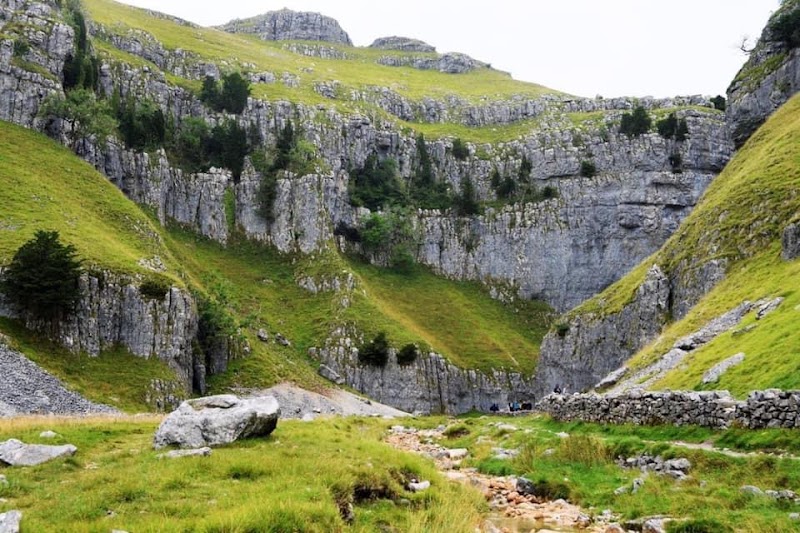
Exploring Curiosity: Newcastle Science Festival Unveiled
Newcastle Science Festival transforms the city into a dynamic playground for curious minds every October. With interactive workshops, enlightening talks, and hands-on exhibits spread across iconic venues, it promises a practical yet inspiring dive into the world of science.
Book Talks and Workshops Early
Popular sessions fill quickly; securing spots online ahead of time guarantees access to your chosen events.
Wear Comfortable Footwear
Venues like museums and historic university buildings often require walking and some stair climbing—supportive shoes help you stay energized.
Plan Your Day Around Venues
Cluster events geographically to minimize travel time and maximize your festival experience, considering walk times in the city's urban core.
Stay Hydrated and Dress in Layers
October in Newcastle can be chilly and damp; lightweight layers and a water bottle keep you comfortable through long event days.
Exploring Curiosity: Newcastle Science Festival Unveiled
Every autumn, Newcastle upon Tyne morphs into a vibrant laboratory of ideas and discoveries as the Newcastle Science Festival unfolds its engaging program across the city. This annual event invites adventurers of the mind and curious visitors to engage directly with science through workshops, talks, exhibitions, and hands-on experiments. Held primarily in iconic city venues such as the Discovery Museum, campuses of Newcastle University, and various historic sites, the festival invites you to navigate a landscape where knowledge and creativity converge.
The experiences range from family-friendly science shows that spark wonder in young explorers, to cutting-edge presentations tapping into astrophysics, robotics, and environmental science. Instead of merely observing, participants are invited to interact—be it building robots, decoding DNA, or discussing climate challenges. The festival’s flow carries the energy of a city alive with ideas, where streets and halls eagerly await your exploration.
Planning your visit means considering the festival’s spread over a week in October. Venues are mostly walkable within Newcastle’s compact city center, but timing sessions is key to catching favorites and avoiding crowd bottlenecks. Comfortable shoes will serve well as you move between events—some spaces hosting talks in historical buildings with stairs but no elevators. Booking popular talks in advance through the festival’s website ensures you won’t miss standout speakers or workshops.
This isn’t a passive stroll; it’s an intellectual hike where your curiosity is the compass and the festival an ever-shifting trail. Engage with exhibits in the Discovery Museum as interactive displays invite you to test senses and perceptions. Let the River Tyne’s brisk autumn breeze push you forward to lecture theaters buzzing with debate on future technologies or environmental stewardship. Evening events, often paired with local cuisine or craft brews, deepen the experience, blending community with science.
This festival respects science as an ever-evolving force, fiercely itself, demanding both wonder and rigor. If you prepare well—hydration, layered clothing for variable October weather, and a flexible schedule—you'll discover Newcastle's science scene as a living entity ready to challenge and inspire. Whether a casual visitor or a seasoned adventurer of knowledge, the Newcastle Science Festival offers a rare, immersive encounter that balances excitement and practical discovery, set against the inviting backdrop of this northern English city.
Nearby Trips
All Adventures
Boat Charters
Water Activities
Adventures near Newcastle upon Tyne, England
Discover the unique and memorable adventures that make Newcastle upon Tyne, England special.
Frequently Asked Questions
When is the Newcastle Science Festival held?
The festival takes place annually in October, generally lasting about a week. Dates can vary year to year, so checking the official website for exact timings is recommended.
Are the events suitable for children?
Yes, many workshops and shows are designed with families and younger audiences in mind, offering interactive and accessible science experiences.
Is Newcastle city center walkable during the festival?
Absolutely. Most venues are within a comfortable walking distance in the city center, though comfortable shoes are recommended due to some historic buildings with stairs.
Can I attend multiple events in one day?
Yes, but it requires planning due to event timing and venue locations. Prioritize your must-see talks or workshops and group venues nearby to maximize your schedule.
Are there any outdoor events as part of the festival?
While primarily hosted indoors, some satellite events or installations might spill outside, especially near the River Tyne or public squares. Check the festival schedule for details.
Is public transportation recommended to get around?
Public transit and taxis are available, but given the compactness of the festival footprint, walking is often the most efficient way to move between activities.
Recommended Gear
Comfortable Walking Shoes
Essential for navigating between dispersed venues comfortably, especially on urban surfaces and stairs.
Light Layered Clothing
Allows you to adjust to the unpredictable October weather, balancing indoor warmth and outdoor chill.
Portable Water Bottle
Helps you stay hydrated during long days of standing, walking, and exploring exhibits.
Festival Guide or App
Provides schedules, venue maps, and event details to effectively plan your visit and avoid missing highlights.
Local Insights
Hidden Gems
- "The rooftop terrace at the Discovery Museum offers views over the Tyne and a quiet break spot."
- "The courtyard of Newcastle University’s Armstrong Building provides a peaceful retreat amidst historic architecture."
Wildlife
- "Urban foxes occasionally appear near quieter city parks, including Leazes Park which neighbors some festival venues."
History
"Newcastle’s industrial heritage and university culture have long made it a hub for scientific inquiry, with the festival echoing a regional commitment to innovation dating back to the 19th century."
